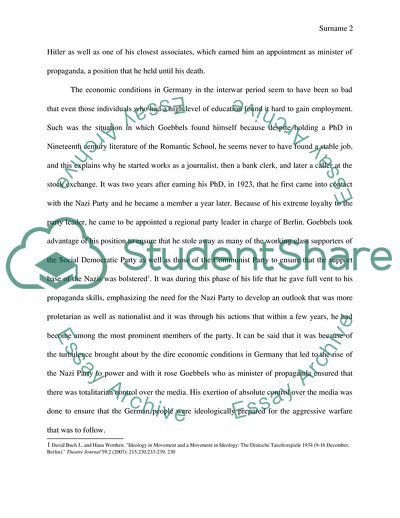Cite this document
(How the Life of Josef Goebbels Illuminate the Crisis in Interwar Europe Essay Example | Topics and Well Written Essays - 3000 words, n.d.)
How the Life of Josef Goebbels Illuminate the Crisis in Interwar Europe Essay Example | Topics and Well Written Essays - 3000 words. https://studentshare.org/history/1814505-how-does-the-life-of-josef-goebbels-illuminate-the-crisis-in-interwar-europe
How the Life of Josef Goebbels Illuminate the Crisis in Interwar Europe Essay Example | Topics and Well Written Essays - 3000 words. https://studentshare.org/history/1814505-how-does-the-life-of-josef-goebbels-illuminate-the-crisis-in-interwar-europe
(How the Life of Josef Goebbels Illuminate the Crisis in Interwar Europe Essay Example | Topics and Well Written Essays - 3000 Words)
How the Life of Josef Goebbels Illuminate the Crisis in Interwar Europe Essay Example | Topics and Well Written Essays - 3000 Words. https://studentshare.org/history/1814505-how-does-the-life-of-josef-goebbels-illuminate-the-crisis-in-interwar-europe.
How the Life of Josef Goebbels Illuminate the Crisis in Interwar Europe Essay Example | Topics and Well Written Essays - 3000 Words. https://studentshare.org/history/1814505-how-does-the-life-of-josef-goebbels-illuminate-the-crisis-in-interwar-europe.
“How the Life of Josef Goebbels Illuminate the Crisis in Interwar Europe Essay Example | Topics and Well Written Essays - 3000 Words”. https://studentshare.org/history/1814505-how-does-the-life-of-josef-goebbels-illuminate-the-crisis-in-interwar-europe.


